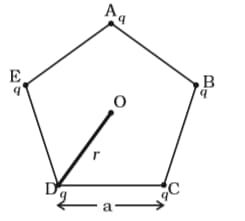NCERT Solutions for Chapter: Electric Charges and Fields, Exercise 3: S.A
NCERT Physics Solutions for Exercise - NCERT Solutions for Chapter: Electric Charges and Fields, Exercise 3: S.A
Attempt the practice questions on Chapter 1: Electric Charges and Fields, Exercise 3: S.A with hints and solutions to strengthen your understanding. NCERT Exemplar Physics - Class 12 solutions are prepared by Experienced Embibe Experts.
Questions from NCERT Solutions for Chapter: Electric Charges and Fields, Exercise 3: S.A with Hints & Solutions
Two fixed charges and are placed on -axis separated by distance . Where should a third charge be placed such that It will not experience any force?
Figure shows the electric field lines around three point charges and . Which charges are positive?
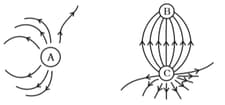
The figure shows the electric field lines around three-point charges and . Which charge has the largest magnitude?
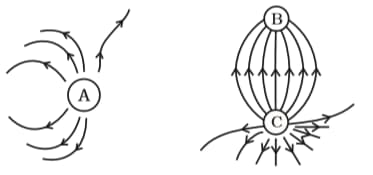
The figure shows the electric field lines around three-point charges and . In which region or regions of the picture could the electric field be zero? Justify your answer.
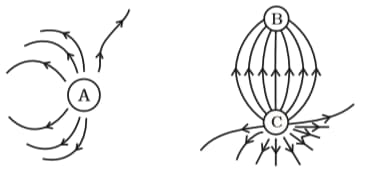
Five equal charges(each ) are placed at the corners of a regular pentagon of side . What will be the electric field at center of the pentagon?
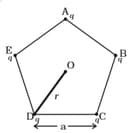
Five equal charges (each ) are placed at the corners of a regular pentagon of side . What will be the electric field at if the charge from one of the comers (say ) is removed?
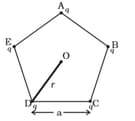
Five equal charges (each )are placed at the corners of a regular pentagon of side . What will be the electric field at , if the charge at is replaced by ?
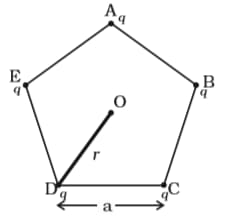
Five charges, each are placed at the corners of a regular pentagon of side 'a'.
(i) What will be the electric field at O, the centre of the pentagon?
(ii) What will be the electric field at O if the charge from one of the corners (say A) is removed?
(iii) What will be the electric field at O if the charge at A is replaced by ?
How would your answer to be affected if pentagon is replaced by n-sided regular polygon with charge at each of its corners?
